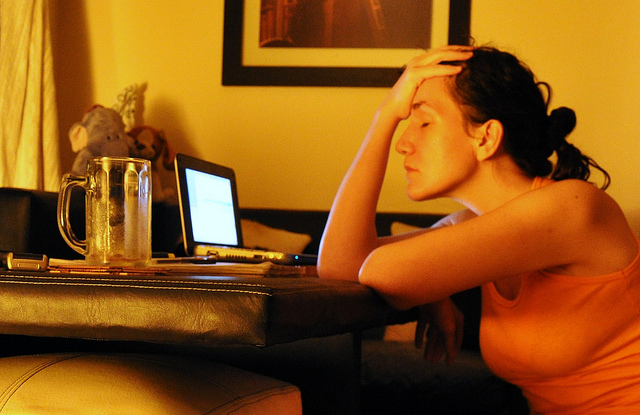Years ago when I was touring with Deepak Chopra, giving Ayurvedic consultations and lectures in different cities, I had a patient who complained of waking up with a headache every morning.
I gave him an herbal protocol, and three months later when I returned to his town, I saw him for a follow-up and he was, unfortunately, no better.
I treated him again—and once again, he was not improved on my next trip to his city.
These consultations on the road were designed to mirror an Ayurvedic consultation in India—a quick pulse reading, followed by some recommendations. Realizing I must have missed something, I went back to the basics. I asked him when he goes to sleep and when he wakes up. He said he goes to sleep at 2 a.m. and wakes up at 11 a.m..
Oh boy, I thought, I really screwed up. This guy is just sleeping at the wrong time. I told him to take out a boring book—not one of mine of course—at about 9 p.m. and as soon as his eyes get tired, turn off the lights and try to go to sleep. Then in the morning, the very first time your eyes open—get out of bed. Do not roll over and go back to sleep, just get up—even if it is 5 a.m.
I asked him to call me in a week and give me a report.
I received a call from him in just a couple of days, and he told me that he did what I said, and he woke up for the first time in 10 years without a headache. While he was grateful on one hand, he then proceeded to accuse me of stringing him along, reminding me I should have told him that on the very first visit. He was right, sort of.
Since then, I try to always look for the most simple and obvious solution first.
The Science Backing Ayurveda
Recently, an Australian study evaluated the sleep habits of 2,200 kids, randomly chosen, between the ages of 9 and 16 years old. They divided the kids into 4 sleep pattern groups (1):
- Early-bed/Early-rise
- Early-bed/Late-rise
- Late-bed/Early-rise
- Late-bed/Late-rise
The results confirmed that when you get sleep may be just as important as how much you get.
The Late-bed/Late-rise group experienced 48 minutes per day more screen time in front of a phone or computer, and 27 minutes less moderate-to-vigorous physical activity than adolescents in the Early-bed/Early-rise category. Interestingly, both groups, within minutes, got very close to the same amount of sleep hours.
Compared to the Early-bed/Early-rise group, the Late-bed/Late-rise adolescents:
- Had a higher Body Mass Index (BMI)
- Were 1.47 times more likely to be overweight
- Were 2.16 times more likely to be obese
- Were 1.77 times more likely to have less moderate-to-vigorous physical activity
- Were 2.92 times more likely to have higher screen time
Ask yourself…or try it tonight!
Imagine going to bed tonight at midnight and waking up at 10 a.m.—how would you feel? Groggy, stiff, achy, dull?
Now, imagine going to bed at 8 p.m. and waking up at 6 a.m. How would you feel in comparison? More energetic, clear, limber and refreshed?
Both of these night’s sleep were 10 hours, but the difference in how you feel is dramatically different.
When you get the sleep is tied to our circadian clocks, and while it is easy to get out of sync, it is also easy to reset your clocks and reap the benefits of better, deeper and more restorative sleep.
References:
- Sleep Duration or Bedtime? Exploring the Relationship between Sleep Habits and Weight Status and Activity Patterns. 2011 Oct 1; 34(10): 1299–1307. 2011 Oct 1. doi: 10.5665/SLEEP.1266. PMCID: PMC3174832
Author: Dr. John Douillard
Image: gi at Flickr

No comments:
Post a Comment